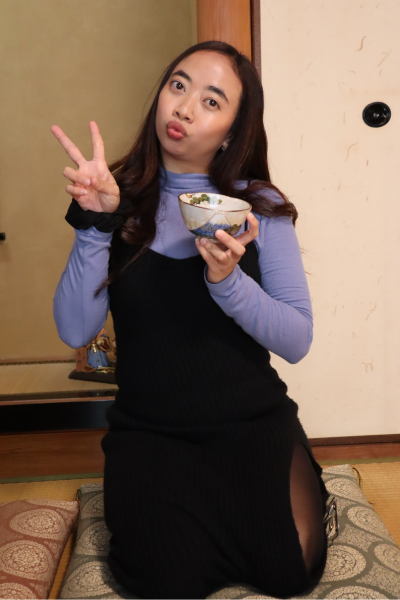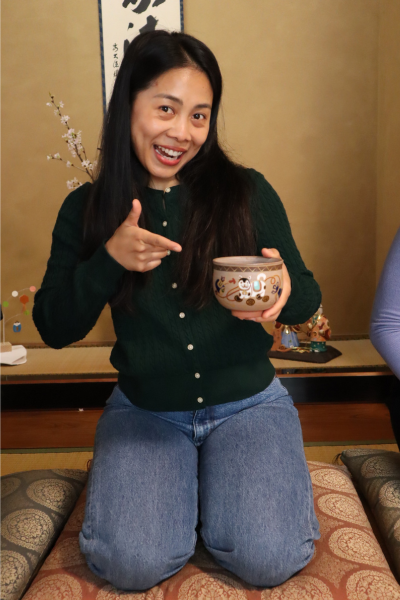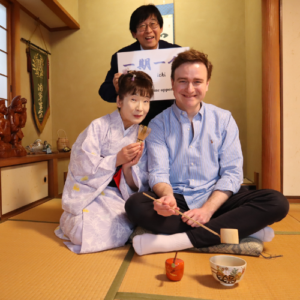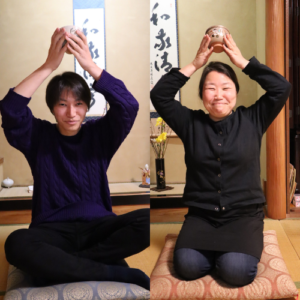A 15-Year Reunion, Ramadan Observance, and Culinary Adventures in Japan
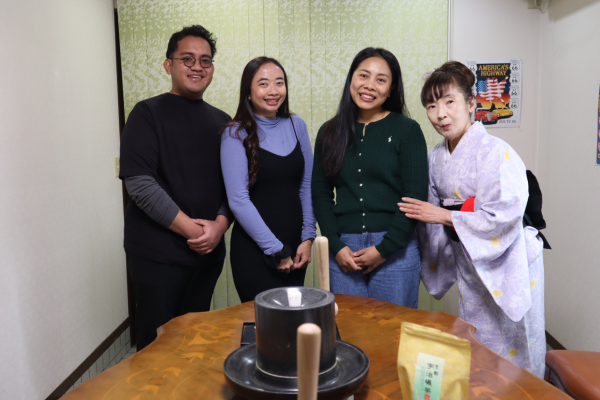
We had several surprises on the way from Hankyu Arashiyama Station to Komurasaki An. All three of them are Indonesian. They are the first Indonesian customers to attend Komurasaki An’s workshop. Rusma currently lives in Australia, Devi in Canada, and when I asked Bagas, ‘Where do you live now?’ his answer was unexpected. ‘I’ve been living in Kyoto for about a year.’ It’s surprising that all three of them live so far apart from each other.
I learned that Rusma and Devi are friends from their junior high school days in Bali, reuniting after 15 years. It’s truly a joy that they selected Japan for their long-awaited reunion.
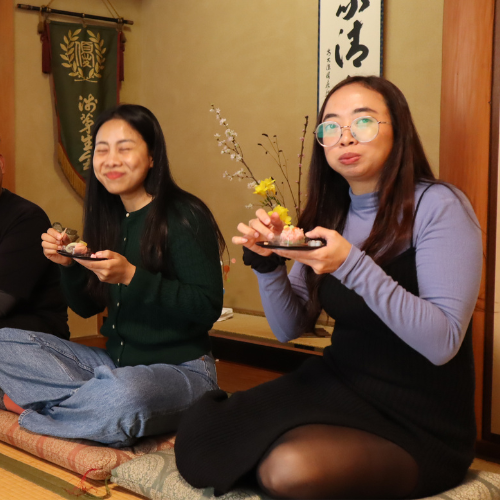
It feels like a miracle that Rusma from Sydney, Australia, and Devi from Vancouver, Canada, met in Japan after 15 years. It takes time and money to come all the way to Japan, but it must be their strong bond that brought them together.
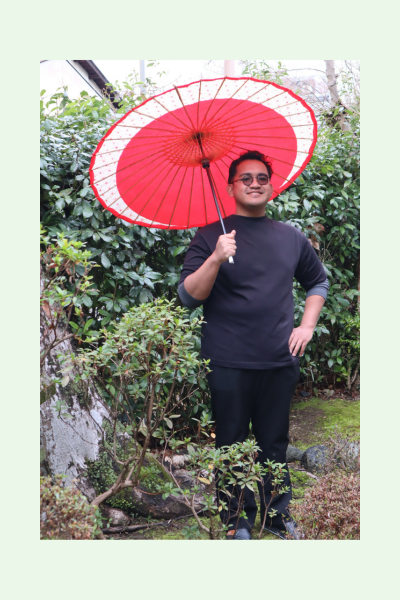
Rusma and Bagas are friends, and it seems Rusma asked him to show them around Kyoto. That’s why Bagas and Devi have only known each other for two days. ‘Bagas, where are you going to take them in Kyoto?’ ‘Kiyomizu-dera Temple and Nishiki Market…’ he started listing the names of places.
When I suggested, ‘How about the Monkey Park?’ he said, ‘Well, it’s a steep mountain. Hmm, that’s a tough climb.’ He looked like he was about to throw a tantrum. I said,”You’re still young! Do you need me to carry you on my back?” We all burst into laughter.
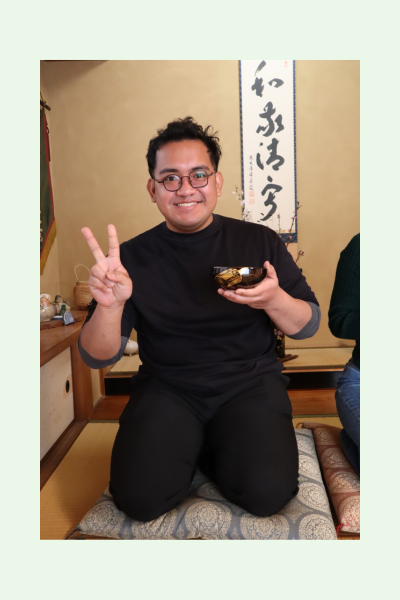
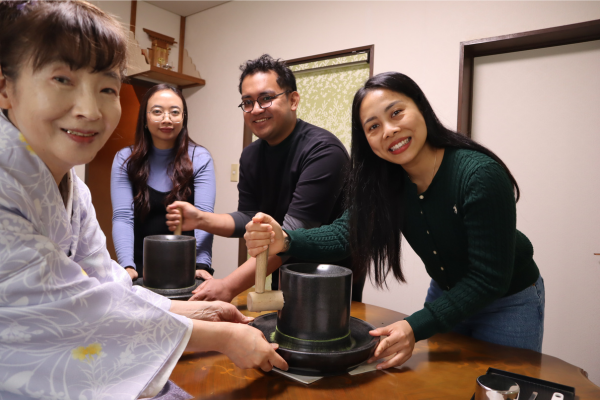
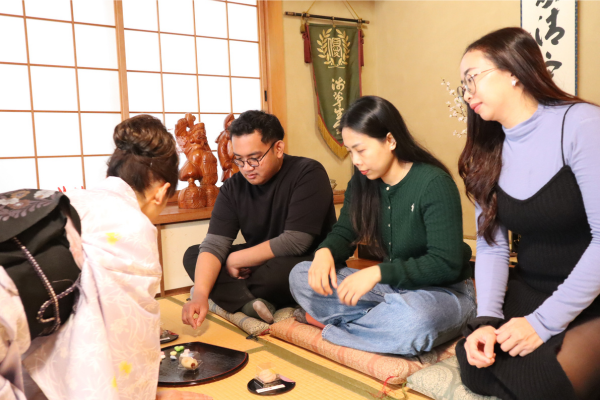
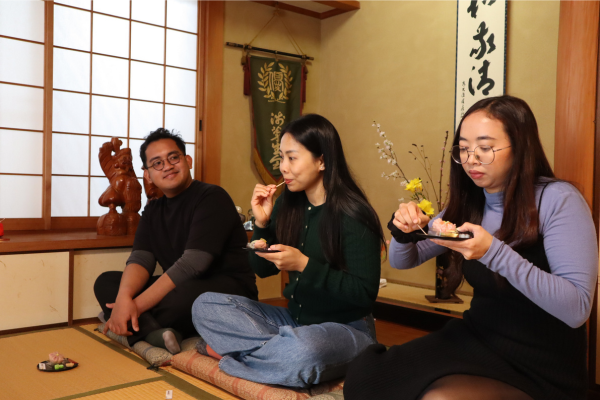
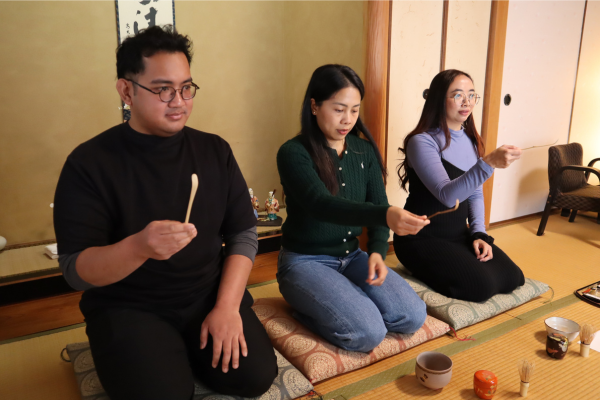
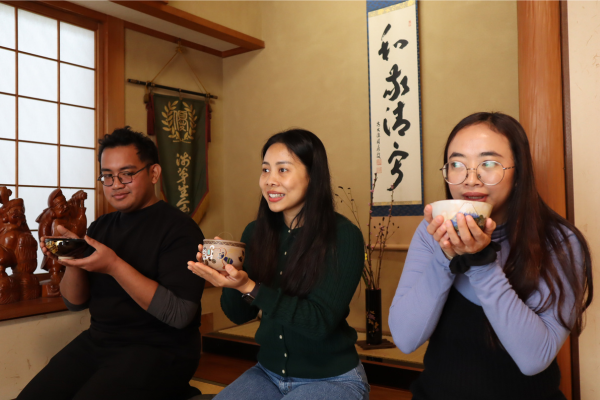
The workshop started, and everyone took their choice of fresh, sweet, or dry sweet treats. Finally, it was time to eat. But for some reason, Bagas just stared at his sweets, not eating them. ‘Bagas, are you OK?’ I asked, concerned. ‘I can’t eat anything until 6 pm for religious reasons,’ he replied. Rusma added, ‘He’s Muslim.’ Ah, it’s Ramadan fasting. Fasting is one of the duties of Muslims, aimed at improving faith and self-discipline.
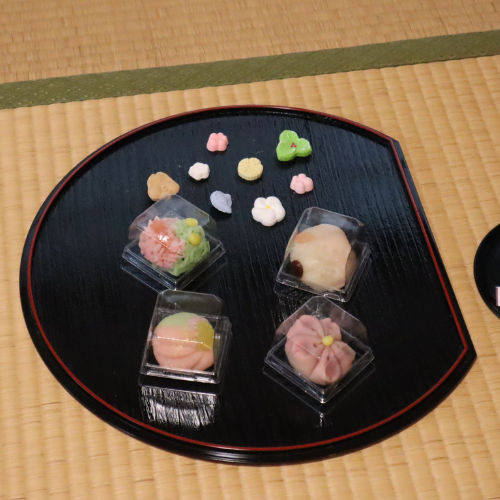
‘But Rusma and I are Hindu, so we can eat,’ she said. It’s amazing how many different religions there are. I wonder if atheists, like many Japanese people, are rare in the world. We’re usually non-religious, but we have flashy Christian weddings and Buddhist funerals. Japanese people, whether Shinto, Buddhist, or Christian, are usually indifferent. I don’t even know what we rely on for spiritual support.”
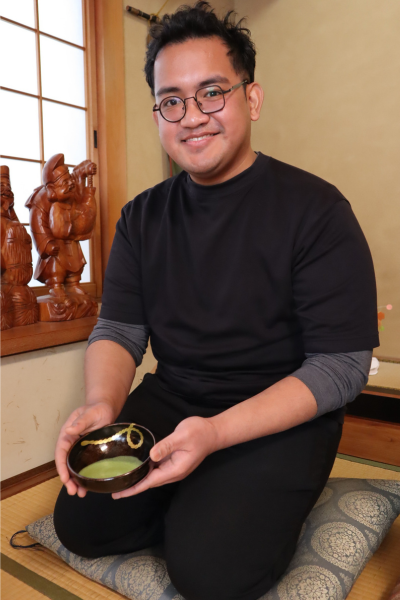
I asked them what they liked to eat in Japan. ‘Udon,’ ‘Ramen,’ ‘Okonomiyaki,’ ‘Sushi,’ ‘Convenience store onigiri,’ ‘Convenience store egg sandwiches,’ ‘Tuna mayo’… The food talk seemed like it would go on forever if I didn’t stop them.
Bagas mixed matcha powder and hot water with a tea whisk, making delicious-looking matcha tea, but he couldn’t drink it. Subsequently, Devi declared, ‘I will partake of it!’ and promptly consumed both her and Bagas’s servings.
